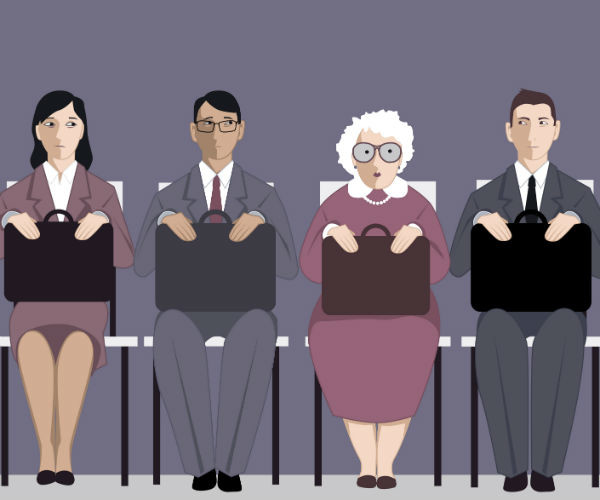Recently, CNN anchor Don Lemon found himself in hot water when he described presidential candidate Nikki Haley as “not in her prime.” His co-hosts appeared upset. And while critics blasted Lemon for the sexist remark, most of the pundits and news reports overlooked the heart of the issue: Haley’s ageist comment that American citizens over the age of 75 should be required to take a mandatory mental competency test in order to run for office.
The Age Discrimination in Employment Act (ADEA) forbids age discrimination against people who are age 40 or older. Still, the ageism nested in the remark, seemed to get buried in the outrage against Lemon’s sexist comment, demonstrating that age discrimination against older adults, rampant in today’s workplace, still flies under the radar in this country. This pattern is not surprising, given the fact that Stanford University research shows that employees approaching retirement (and beyond) face age bias even from younger employees who fight other forms of prejudice such as racism and sexism. Was ageism the underbelly of Lemon’s self-described “in-artful” comment?
An AARP survey found that 78% of workers aged 45 and over report either witnessing age discrimination or suffering from it in 2020. And Deloitte research asked 10,000 companies if age is a competitive advantage or disadvantage. Over two-thirds of the companies said older age is a competitive disadvantage. A body of research shows that age bias affects the psychological well-being of older adults. Despite the fact that only four percent live in nursing homes, people of a certain age are considered less capable, flexible and adaptable. Of course, the mind and body decline to a certain degree as we age. But the large majority of older adults in this country hit their creative prime in later years, and a majority are thriving well into their 70s and 80s. Should a mandatory mental test be required of such notable politicians as 80-year-old Mitch McConnell or Chuck Grassley and Dianne Feinstein, both 89 years old, or former Speaker of the House, Nancy Pelosi, who is 82 years-old?
And what message does the proposal send to the older workforce at large? Imagine requiring a mental competency test from 92-year-old Warren Buffett or Ruth Bader Ginsberg, when she actively served on the Supreme Court until her death at the age of 87. Or Dolly Parton, still crooning at 77 years, Robert Redford at age 86 or Jane Fonda, who is still an activist and actor well into her mid-eighties. And what about Mick Jagger at 79 and Elton John at 75 still jaming on stage? Should we send them out to pasture? American folk artist Grandma Moses didn’t start painting until her mid-seventies, and comic Joan Rivers claimed she didn’t hit her prime until she turned 80. These are prominent American citizens most of us know, less affected by age discrimination because of their notoriety. But what about the legions of older adults in this country, thriving in all walks of life, enjoying longer, healthier lives and actively engaged with their careers?

A growing number of seniors continue to work long past traditional retirement age. According to The Bureau of Labor Statistics, 10.6 million people 65 and older are gainfully employed. And Statistics project that older adults will be the fastest growing age group in the labor force by 2026. The 55 and older age group filled nearly half of new jobs in 2018. Many older adults continue to work into their 70s and 80s because they enjoy what they do. Working longer yields benefits from income to social connections to fulfillment in staying busy. Age discrimination prevents some workers from realizing their goals or pushes them out of the labor market entirely. Plus, employers with an ageist perspective miss out on an experienced talent pool.
For many retirement-age adults, continuing to work provides meaning and purpose. Many end up doing their best work in later years. It’s a win-win as more businesses benefit from recruiting older workers or bringing retirees back into the workplace. Senior managers have valuable experience, wisdom and creativity—even the soft skills that are in high demand—to mentor younger workers, all of which contribute to the organization’s bottom line. It’s long past time for leadership to recognize valuable workers of all ages without bias and make sure when we talk about equality that older adults are part of the diversity and inclusion workplace policies.
Let’s not forget what 69-year-old Ronald Reagan—the oldest first-term presidential candidate at the time—said to silence those who practiced age bias, “I will not make age an issue of this campaign. I am not going to exploit, for political purposes, my opponent’s youth and inexperience.” This humorous, although sage advice, of not making age a discriminatory focus in the workforce applies to including all ages who have essential contributions to make.


